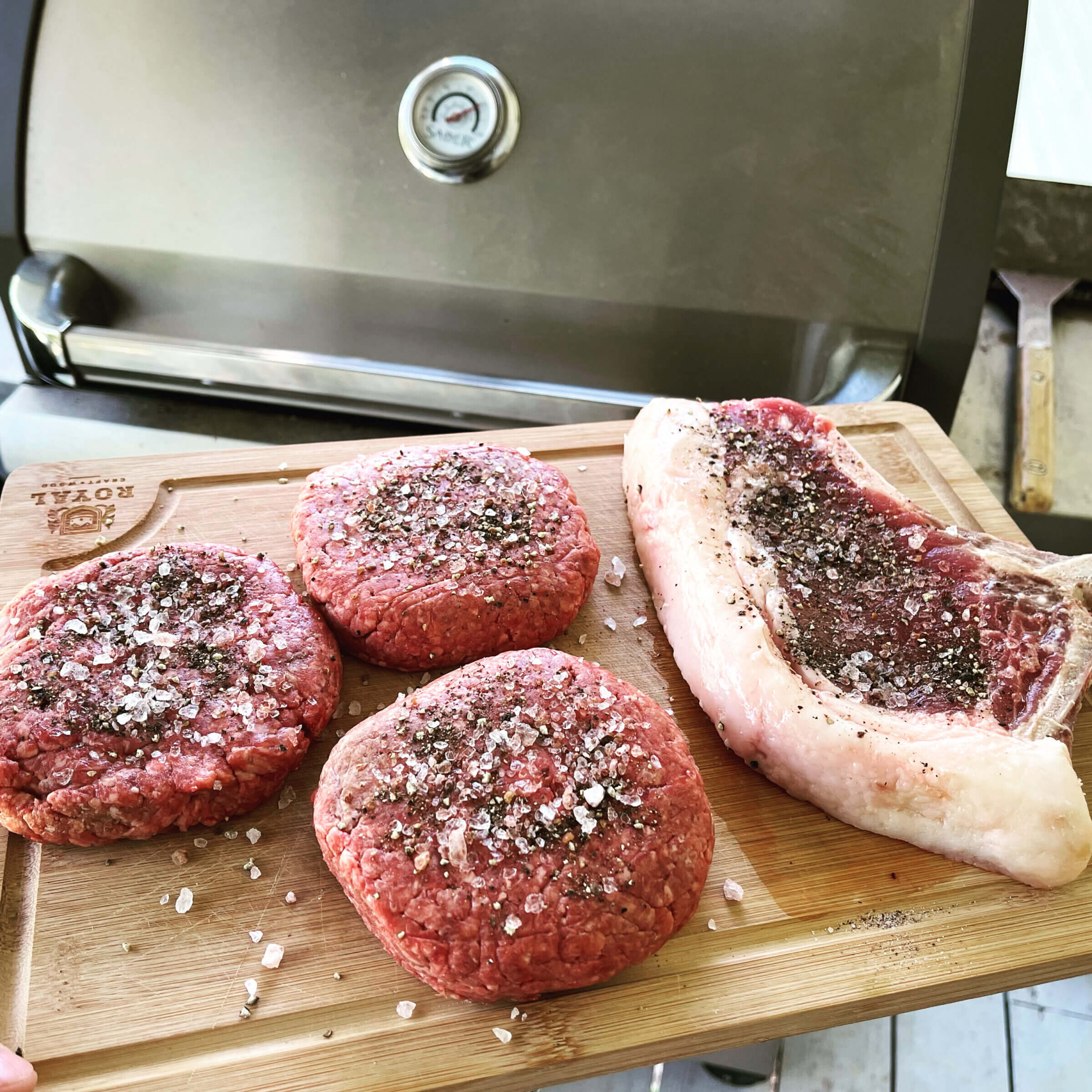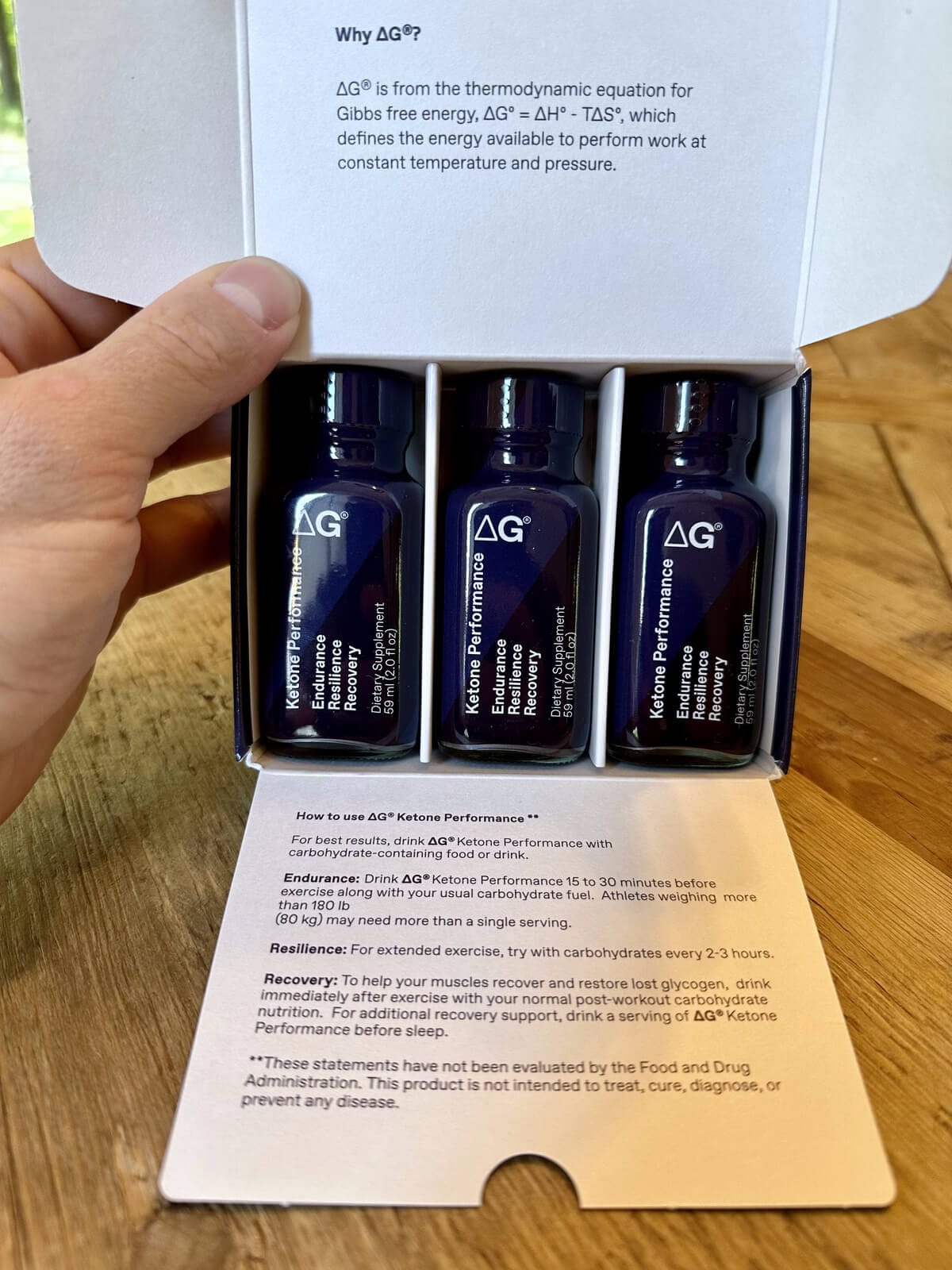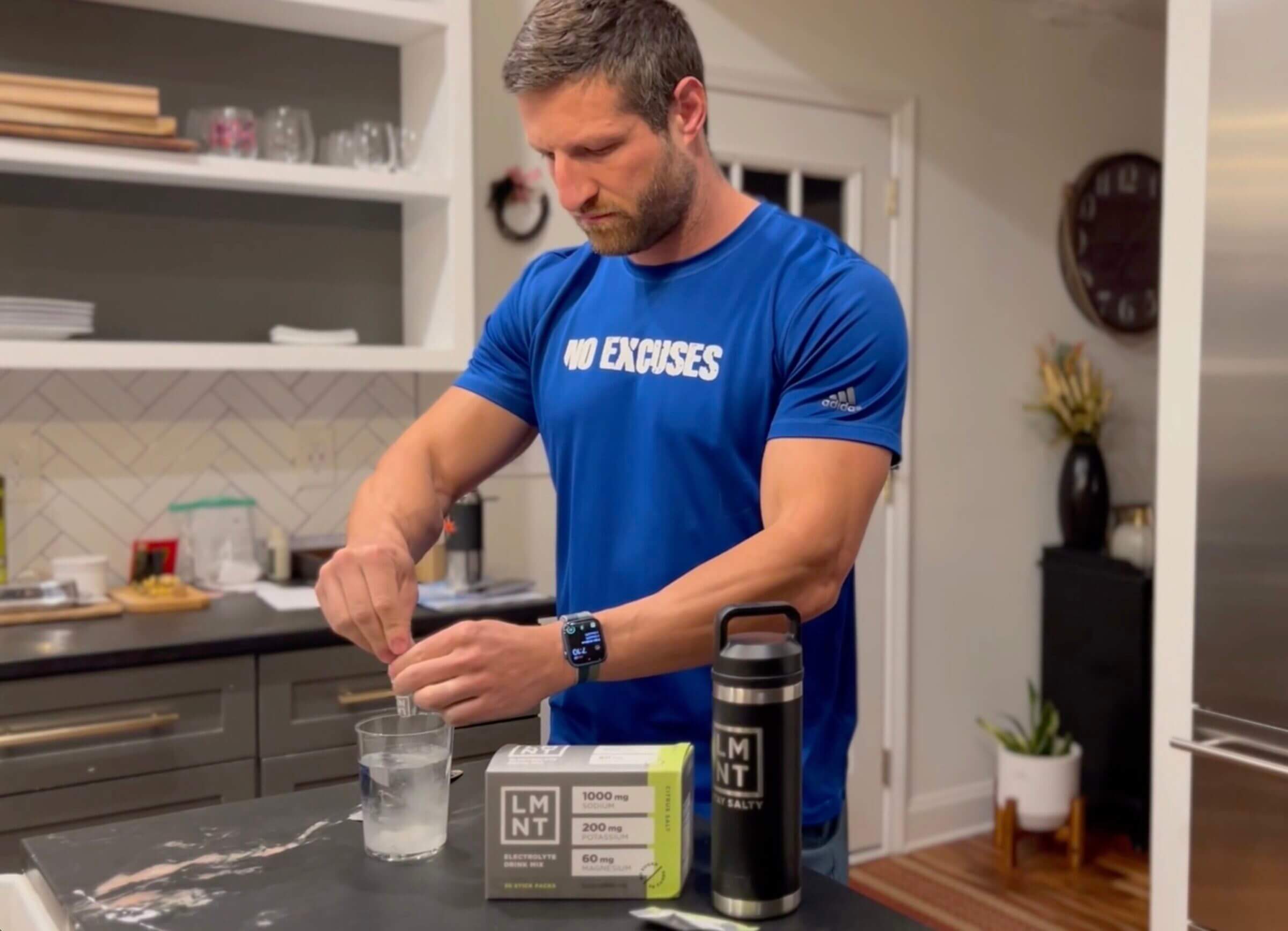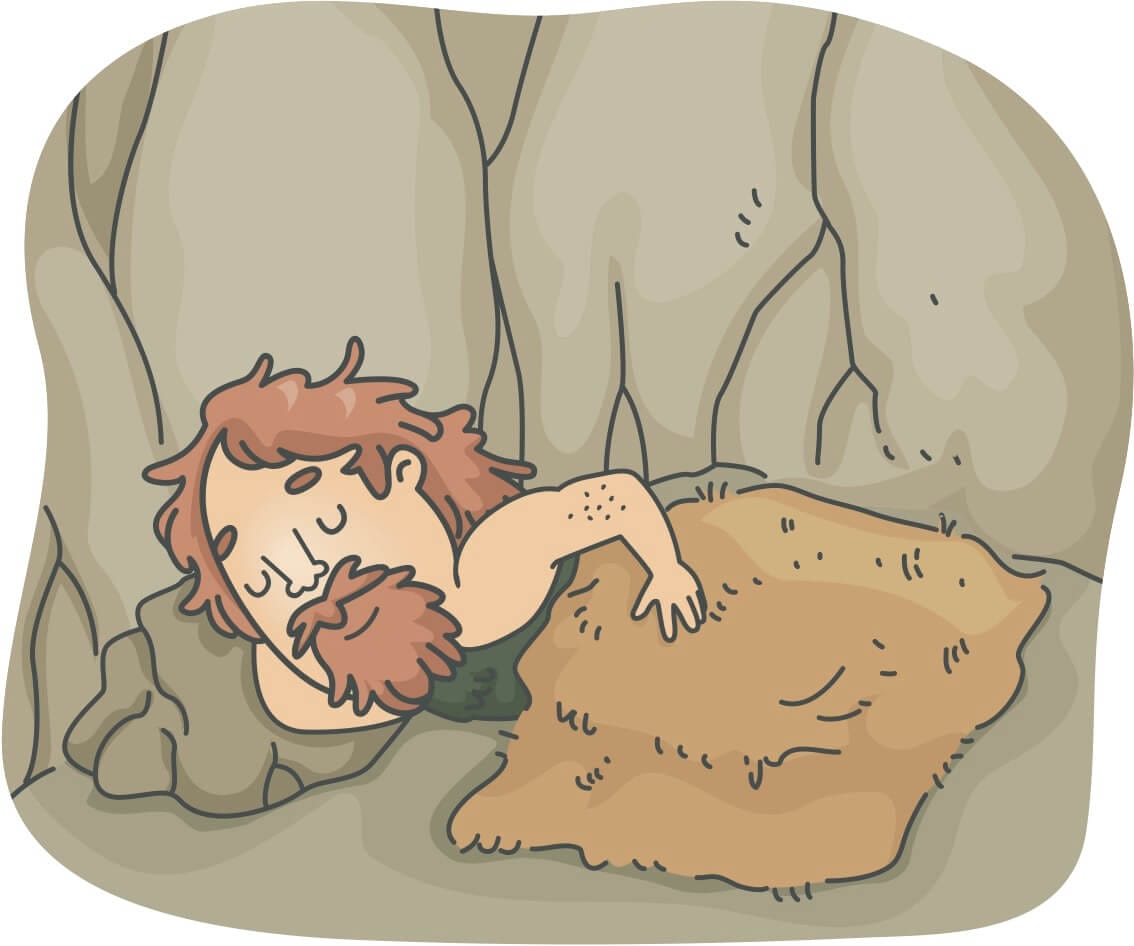Intermittent fasting has become incredibly popular among healthy living enthusiasts thanks to benefits that include improved metabolic flexibility, lower insulin levels, weight loss and the maintenance of a healthy gut microbiome
While fasting is easy for some people, others struggle to curb hunger during prolonged fasts. In this article, I’ll share strategies you can implement to make it through your fast as comfortably as possible, with tips for adjusting them to align with your individual fasting goals (e.g., autophagy, gut repair, fat loss, etc.).
To learn more about the benefits of intermittent fasting, the potential side effects and how to get started, check out my ultimate guide to intermittent fasting.
Why You Get Hungry While Fasting
There are a few different reasons why you might feel hungry while fasting, including:
- Your body is running low on fuel. If your body isn’t metabolically flexible enough to burn its own fat for fuel, it has to rely on the glucose (carbs) you consumed during your last meal. When that glucose begins to run out, you start feeling hungry.
- Your body thinks it’s time to eat. When you eat at the same times every day, your body gets used to being fed on that schedule. As a result, it produces increased levels of the hunger hormone ghrelin, encouraging you to provide it with fuel.
- You’re dehydrated. The human brain can confuse dehydration with a lack of fuel (which is one of the reasons why it’s important to drink enough water during fasting periods).
- You’re stressed. As discussed in my article about the top reasons why you’re not losing weight, stress increases cortisol and ghrelin levels, and thus increases your desire to eat.
- You’re tired. Sleep deprivation makes you hungry because your body tries to compensate for your lack of energy by consuming extra calories.
- Your gut has low microbial diversity. The bacteria in your gut influence hormones and other chemicals that trigger hunger and food cravings. While a healthy gut consists of a wide variety of beneficial bacteria, studies have shown that low microbial diversity can increase the feeling of hunger. So if you’re struggling with uncontrollable hunger while fasting, there is likely something wrong with your gut microbiome that you should address.
- You drank too much alcohol before your fast. Alcohol reduces the levels of certain hormones, such as leptin, that suppress your appetite. As a result, you might feel hungrier than normal if you consumed too much alcohol before starting your fast.
- You take certain medication. Some medications — including antipsychotics (e.g., clozapine and olanzapine), antidepressants, mood stabilizers, corticosteroids and anti-seizure drugs — may induce hunger and make it more difficult to abstain from food during fasts.
- You have a medical condition. Medical conditions, such as diabetes, can make you feel increasingly hungry (and thirsty) due to abnormally high blood sugar levels. If in doubt, I recommend testing your long-term blood glucose (Hemoglobin A1c) and fasting insulin levels to rule out such disorders.
Knowing these common causes of hunger while fasting can help you understand why the tips below are important. You can take a deeper dive into all of the above by checking out my article about the main reasons you feel hungry.
10 Tips to Curb Hunger When Fasting
1. Eat Protein-Rich, High-Fat Food While Not Fasting

One of the most effective ways to curb hunger while fasting is to enable your body to burn its own fat for energy. That’s because even the skinniest among us have more fat than glycogen stored in our bodies, and this fat can be used for energy in the absence of food.
The best way to enable your body to burn fat for energy is to reduce your carbohydrate intake and eat more fat and protein.
The ability to switch from burning glucose to burning fat for energy is called metabolic flexibility, and it’s something we’re all born with. It’s also the underlying principle of the ketogenic diet. Unfortunately, we lose this flexibility over time as we condition our body to rely on glucose, which we supply it through a constant stream of carbohydrates.
As powerful as metabolic flexibility is, it usually takes a few weeks to get there if you’ve been following a standard American diet, which includes a substantial amount of processed carbs (glucose). So it’s not a short-term solution, but one that will pay off over time.
With that said, consuming more fat and protein can still reduce your hunger during fasting even if you’re not yet metabolically flexible. This is because the body takes more time to digest fat and protein than carbs, which means you’ll likely feel full and satiated for longer after consuming a meal that’s rich in these macronutrients.
2. Utilize Exogenous Ketones

The human body can utilize a number of different fuel sources. Ketones — which are chemicals made by the liver from fatty acids — are the brain’s preferred fuel source, because they enter the brain in proportion to their plasma concentration irrespective of glucose availability.
In other words, ketones can suppress the brain’s glucose consumption while providing enough fuel to prevent cognitive impairment.
If your brain has enough fuel, you’re less likely to feel hungry and will thus have less desire to look for food. Exogenous ketones provide fuel to your brain and other organs without raising insulin levels or negatively influencing autophagy, fat loss or endogenous ketosis (the body’s own ketone production).
While maintaining a low-carb diet (such as a ketogenic diet) ensures a consistent supply of endogenous ketones, you can also leverage exogenous ketone supplements to provide fuel to your brain and other cells that can use ketones for fuel.
I use exogenous ketones strategically on days that I want to boost my mental performance, like when I’m recording a video for my YouTube channel, doing podcast interviews or writing a complex article that requires a lot of research.
One important note is that while I used to believe that consuming exogenous ketones would break a fast, I no longer believe that to be the case.
That’s because exogenous ketones don’t negatively impact any of my fasting goals. In other words, exogenous ketones don’t stop autophagy (the body’s cell recycle program), they don’t prevent the liver from making endogenous ketones, they don’t reduce fat burning and they don’t impact the gut microbiome.
As a result, I conclude that utilizing exogenous ketones is perfectly fine — especially if they enable you to fast for longer periods than you normally would.
3. Increase Your Electrolyte Intake

When you refrain from eating, you likely consume fewer electrolytes, such as sodium, potassium and magnesium. Plus, as your body taps into liver and muscle glycogen for fuel, it flushes out water and electrolytes. That combination can lead to an electrolyte imbalance that can make you crave salty foods and experience fatigue, sleeplessness or brain fog.
While cravings and hunger aren’t necessarily the same thing, both make it more difficult to fast. Additionally, when you’re fatigued and low on energy, your brain may try to compensate by releasing appetite-inducing hormones like ghrelin.
That’s why I recommend increasing your salt intake during fasts, such as by drinking several glasses of water mixed with a teaspoon of salt each throughout the day.
If you’re an athlete and sweat a lot, you can lose up to seven grams of sodium per hour. I’ve noticed on days that I work out, fast or use my infrared sauna (or a combination thereof), I need to dramatically increase my sodium intake to prevent my mental and physical performance from going down the drain.
One of the most delicious ways to accomplish that is by taking a clean electrolyte supplement. My favorite is LMNT because it contains a science-backed electrolyte ratio of 1,000 mg of sodium, 200 mg of potassium and 60 mg of magnesium without any of the junk my body doesn’t need.
However, you can also just make your own electrolyte supplement at home, as explained in my article about why you need electrolyte supplements on keto.
4. Consume Acacia Fiber
In addition to fat, soluble fiber (such as acacia fiber) can help you curb hunger without breaking your fast. We always have a pouch of organic Acacia powder in our pantry. So when the need arises, I can just add one or two tablespoons of it into my coffee.
Consuming soluble fiber appears to lower the body’s ghrelin levels, leading to less motivation to eat. Plus, it gives the digestive system something to work on — even though your body can’t digest the fiber or extract nutrients from it.
That’s helpful because any time your digestive system is active, your hunger hormone levels change (albeit with a delay of a few minutes). As a result, you feel less hungry until your body realizes that what you ate didn’t provide sufficient calories (or any at all) to meet its needs.
However, I do recommend staying away from fiber if the purpose of your fasting is to repair or maintain your gut microbiome. Fiber is food for the bacteria in your gut (including bad bacteria) and you don’t want to feed bad bacteria if your goal is to restore a healthy gut.
Additionally, a recent study published in Nature has shown that high-fiber diets can feed certain types of (bad) bacteria that produce inflammatory compounds that exacerbate conditions such as rheumatoid arthritis.
I recommend staying away from commercial fiber blends (such as Metamucil) because they usually contain unhealthy ingredients like artificial sweeteners, maltodextrin and “natural” flavors that are anything but natural.
Plus, they’re more expensive than a bag of Acacia fiber on Amazon.
5. Expose Yourself to Mild Stressors

A long-term strategy for curbing hunger while fasting should include a focus on reducing chronic stress, which causes a rise in the hunger hormone ghrelin. However, there are certain mild stressors that not only make you more resilient (called hormetic stressors) but which can also be effective appetite suppressants.
For example, I love working out in the morning in a fasted state because it distracts me and prevents me from getting hungry. But even more importantly, studies have shown that exercise positively influences the levels of certain hormones associated with appetite, including ghrelin and leptin.
Plus, the type of high-intensity workouts I do cause my body to release glycogen to fuel my muscle cells and brain. As a result, I don’t feel hungry during, and for a period after, the workout.
I’ve had a similar experience with other types of hormetic stressors, including cold plunging and sauna bathing. The important thing is to keep the stress level low enough to distract yourself without causing a spike in ghrelin levels.
If you’re new to hormetic stressors, you’ll likely have to experiment with what levels work best for you and adjust them over time as your body becomes more resilient.
6. Distract Yourself

I typically don’t eat on days I travel, because being on the road keeps me distracted, making prolonged fasts relatively easy. In fact, I’ve done most of my 24-hour fasts on days I had to travel or went hiking with the family.
That’s because a distraction can change your perception of hunger. The brain processes signals from other parts of your body and the environment relatively linearly, and you can easily mute certain signals by prioritizing other inputs. Practically speaking, that means being distracted makes you feel less hungry because your brain is busy processing the distraction rather than the need for procuring food.
You might have experienced a similar effect if you ever got hurt twice within a short amount of time. For example, if you pinched your finger and seconds later banged your shin, chances are that you felt most of the pain in your shin rather than your finger. That’s because the brain gets distracted with new pain signals, thus paying less attention to the old ones.
Of course, travel isn’t the only distraction you can leverage to keep your mind off eating. If you work in an office and have meetings all day, maintaining a fast is usually easier than if you’re sitting at home on the couch. I used to go to a physician who only ate one meal a day because he was so busy seeing patients from morning until evening that he didn’t even feel hungry between appointments.
So try to keep yourself busy, out of the house and away from food on days you find it challenging to fast.
7. Schedule Your Fasting Hours Overnight

One of the best ways to fast intermittently is to schedule your fasting hours around sleep. That’s because while you sleep your brain is occupied with other things, such as physical recovery and memory consolidation, rather than acquiring food for fuel.
For example, if your goal is to fast for 16 hours, you can enjoy dinner three hours before going to bed. If you then sleep for 8 hours, you’d have already fasted for 11 hours by the time you wake up.
If you’re like me, you’re probably not hungry right away in the morning, making it easy to extend your fast by a few more hours. If you do get hungry, I recommend having a cup of coffee with butter and MCT oil (see the Bulletproof coffee section below) or hitting the gym.
That’s usually what I do, and by the time I’m back from the gym, have showered and prepared my first meal, 16 hours have passed.
8. Drink Sparkling Water

Mild dehydration can sometimes manifest as hunger. So if you feel hungry, the first course of action is to hydrate and see if the hunger subsides.
Of course, this trick is most effective if you feel hungry due to dehydration. But even if you’re well hydrated, drinking enough water can make you feel full temporarily as the water fills up your stomach.
However, it’s worth noting that it might take five to 10 minutes after consuming water before you feel its hunger-reducing effects.
Sparkling water might work even better than tap water, as some studies have shown that drinking carbonated water increases satiety and the feeling of fullness.
In other words, the pure sensation of bubbles in your mouth can change your perception of hunger. In a sense, the sensory inputs from the gas bubbles distract your brain, making you feel less hungry.
Just make sure you stay away from sweetened beverages, even if they don’t have calories. As explained in my article about the dangers of artificial sweeteners, some of these products can alter your gut microbiome and negatively impact your glucose metabolism.
Additionally, avoid drinking water out of aluminum cans and plastic bottles, both of which can leach endocrine-disrupting chemicals into the water, negatively impacting your health and potentially leading to weight gain.
9. Drink Bulletproof Coffee
Caffeine is a natural stimulant that suppresses appetite. It also increases fat burning and ketone production. That’s why I usually have a cup of black coffee in the morning.
To make coffee even more effective while fasting, you can add butter or MCT oil (also known as Bulletproof coffee, a term coined by biohacking legend Dave Asprey) to provide some extra calories and further increase your ketone production.
That’s because your body can quickly convert medium-chain triglycerides (MCTs) into ketones and use them for energy. Additionally, fat is incredibly satiating, making you feel full even in the absence of other calories.
Depending on your fasting goals, consuming calories in the form of fat might be counterproductive because the fatty acids from dietary fat can feed opportunistic (bad) gut microbes. For example, if you’re fasting to support gut health, I’d avoid consuming any calories at all (including fat).
Fasting purists might argue that consuming any calories breaks your fast, but I have a more nuanced view on that issue. If your primary fasting goal is to trigger autophagy, promote weight loss or to get into ketosis quicker, consuming fat won’t derail those efforts.
For example, autophagy (your body’s natural cell repair and recycle program) usually stops in the presence of insulin and certain amino acids from protein. Consuming small amounts of fat via Bulletproof coffee doesn’t raise insulin levels or provide amino acids.
The same goes for endogenous ketone production and facilitating weight loss; certain fatty acids, including the ones found in MCT oil, fuel ketone production and are thus safe to consume.
I regularly fast to increase my longevity and health span, and adding fat to my coffee won’t negatively impact that. If you’re not a coffee drinker, black tea or green tea are excellent alternatives.
Here’s a link to my current favorite MCT oil on Amazon.
10. Chew Gum
Some studies have shown that chewing gum can satisfy appetite and suppress cravings.
The authors of one study concluded that “orosensory stimulation is an important contributing factor to the development of satiation.” In other words, the chewing sensation may alter appetite-suppressing hormone levels that make you feel full even in the absence of food.
Considering how readily available chewing gum is, I’d recommend giving it a try. The only problem with chewing gum is that many products are full of artificial ingredients, unhealthy sweeteners (e.g., aspartame) and microplastics.
I don’t chew gum often but when I do on occasion I get a pack of PUR gum from Amazon.
Frequently Asked Questions
I recommend against changing your food intake or overeating leading up to a fast. While consuming more food than you need can keep you satiated for a bit longer, it won’t help you control your hunger once the food has left your stomach and upper intestines.
That depends on what’s driving your hunger. If you feel hungry because you’re approaching your regular meal time, the feeling will likely subside within an hour or two. If you feel hungry because your body is having trouble switching from burning glucose to fat for energy (i.e., entering ketosis), it’ll likely take much longer for the hunger to go away. In that case, I recommend slowly increasing your fasting windows over the course of several days or weeks. That will help you become more metabolically flexible, which will make fasting a lot easier.
If you’re not fat-adapted — i.e., if your body can’t efficiently burn fat for energy — and you run out of glucose, your brain doesn’t get the fuel it needs to function optimally. That leads to intense hunger and can cause irritability.
The best way to prevent that is to improve your metabolic flexibility by adopting a low-carb diet that enables your body to enter ketosis, the metabolic state in which you burn fat (i.e., ketones and fatty acids) for energy.
Another reason you might not feel well during a fast — and one that is closely related to metabolic inflexibility — is carb withdrawal. If you normally consume a diet that’s high in carbohydrates, and processed carbohydrates in particular, you’ll likely experience withdrawal symptoms when you don’t eat (carbs).
It’s the same principle when you’re withdrawing from certain drugs like opiates. In fact, many carbohydrates (especially sugar) interact with opioid receptors in the brain, and in the absence of such carbs, you might experience withdrawal symptoms.
The best way to fix that issue is to enable your body to burn fat for energy by significantly reducing your carb intake and removing processed carbs from your diet.
The third reason why fasting might make you feel crappy is an electrolyte imbalance. Fixing that is as simple as drinking a glass of water with salt every couple of hours or leveraging electrolyte supplements, such as LMNT.
No, eating small amounts of food frequently during fasting is counterproductive. The goal of fasting is to give your digestive system and pancreas a break from food and to maintain low blood sugar and insulin levels. Consuming frequent meals has the exact opposite effect, thus rendering your “fast” ineffective. In fact, fasting describes the absence of something — you’re not fasting (from food) by consuming frequent meals.
Some people claim that apple cider vinegar promotes fat loss and suppresses appetite. However, I haven’t seen any scientific evidence supporting those claims. That said, some studies have shown that apple cider vinegar can help control blood sugar after consuming carbs. That’s the reason why I sometimes drink diluted apple cider vinegar after the occasional carb-rich meal.
Just keep in mind that apple cider vinegar is acidic and might contribute to the erosion of tooth enamel.
Some people have had success with using herbal teas — such as mint, hibiscus or dandelion tea — to curb hunger. I haven’t had much success with herbal teas during fasting unless they contained caffeine (e.g., green or black tea). But it might be worthwhile to give it a try.
How to Curb Hunger While Fasting: Summary & Final Thoughts
I’d argue that most people have never experienced real hunger. What you feel when you haven’t eaten in a couple of hours (or even a day) are cravings spurred by your body’s inability to burn fat for energy (i.e., metabolic inflexibility) or by elevated ghrelin levels due to stress or fixed meal times.
True hunger is when your body has run out of resources and requires nutrients to avoid starvation. Usually that doesn’t happen for several days or weeks, depending on your energy expenditure.
The good news is that cravings are much easier to curb than true hunger.
One of the most effective ways to curb hunger while fasting is to ensure a consistent supply of ketones to your brain. If your brain is happy, fasting without experiencing out-of-control hunger levels is relatively easy.
That’s why I highly recommend improving your metabolic flexibility and becoming fat-adapted if you want to be successful with fasting in the long-term.
Once you’re fat-adapted, fasting for up to a day becomes effortless. Both my wife and I maintain a 16-hour fasting period with an 8-hour eating window almost every day, and we don’t even have to make an effort. In fact, we’re not even hungry during our fasting window.
If you have other methods for curbing hunger while fasting, or have heard of other tips, please share them by leaving a comment below!
And if you’ve tried fasting but have had trouble sticking with it, check out my list of strategies for making fasting easier in the long-run.

Michael Kummer is a healthy living enthusiast and CrossFit athlete whose goal is to help people achieve optimal health by bridging the gap between ancestral living and the demands of modern society.
Medical Disclaimer
The information shared on this blog is for educational purposes only, is not a substitute for the advice of medical doctors or registered dieticians (which we are not) and should not be used to prevent, diagnose, or treat any condition. Consult with a physician before starting a fitness regimen, adding supplements to your diet, or making other changes that may affect your medications, treatment plan or overall health. MichaelKummer.com and its owner MK Media Group, LLC are not liable for how you use and implement the information shared here, which is based on the opinions of the authors formed after engaging in personal use and research. We recommend products, services, or programs and are sometimes compensated for doing so as affiliates. Please read our Terms and Conditions for further information, including our privacy policy.


I dont think sodium excretion is the same as intake. I didn’t see a 4 to 8g or 8 to 16g of anything in the article. But even if that WAS the amount of sodium intake, 16g is equal to almost 1 Tbsp of salt.
1 g = 0.175747 tsp. 16 = 2.8 tsp
https://www.inchcalculator.com/convert/gram-salt-to-teaspoon-salt/
Also, the article you referenced said “studies reporting the strongest association between high sodium intake and CV mortality had mean intakes of about 4 g per day.”
See my other comment. The study I linked clearly states: The association between estimated sodium excretion and CV events was J-shaped. Compared with baseline sodium excretion of 4 to 5.99 g per day, sodium excretion of greater than 7 g per day was associated with an increased risk of all CV events, and a sodium excretion of less than 3 g per day was associated with increased risk of CV mortality and hospitalization for CHF.
So 3 – 7 appears to be the sweetspot.
A TABLESPOON of salt in several glasses of water each?!?! Our daily max should be 1 TEASPOON a day
Hey KP,
I don’t know who told you that your daily salt intake should be a teaspoon but that recommendation lacks any scientific rationale. The ideal daily sodium intake associated with the lowest CVD risk is somewhere between 4 – 8 grams. That’s 8-16 grams of salt. See https://pubmed.ncbi.nlm.nih.gov/22110105/
Cheers,
Michael
I dont think sodium excretion is the same as intake. I didn’t see a 4 to 8g or 8 to 16g of anything in the article. But even if that WAS the amount of sodium intake, 18g is equal to 1 Tbsp of salt.
1 g = 0.175747 tsp. 18g = 3 tsp
https://www.inchcalculator.com/convert/gram-salt-to-teaspoon-salt/
Also, the article you referenced said “studies reporting the strongest association between high sodium intake and CV mortality had mean intakes of about 4 g per day.”
Sodium intake is directly correlated with sodium excretion. The body primarily controls sodium balance through the kidneys, which adjust sodium excretion to match intake over time. However, I said TABLESPOON in the blog post when I meant TEASPOON. So I take several teaspoons of salt per day.
Thank you, thats pretty much all I was looking for lol
telling people who are trying to lose weight to eat high fat animal products is dangerous and irresponsible. shame on you.
Why do you think telling people to eat foods humans and their early ancestors have been eating for 2.6 million years (without suffering from chronic diseases or obesity) is dangerous and irresponsible?